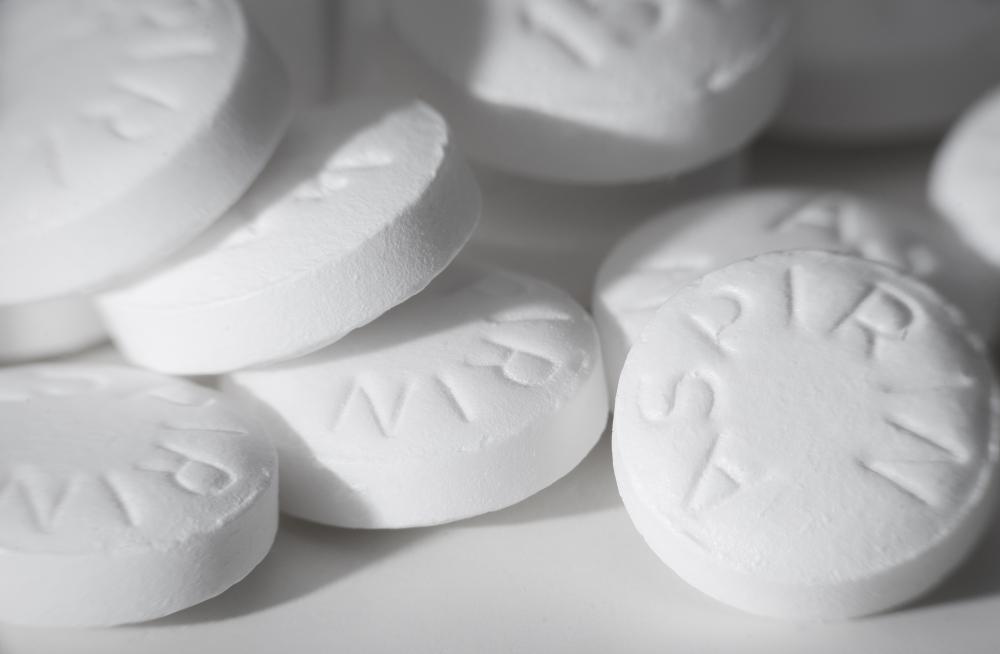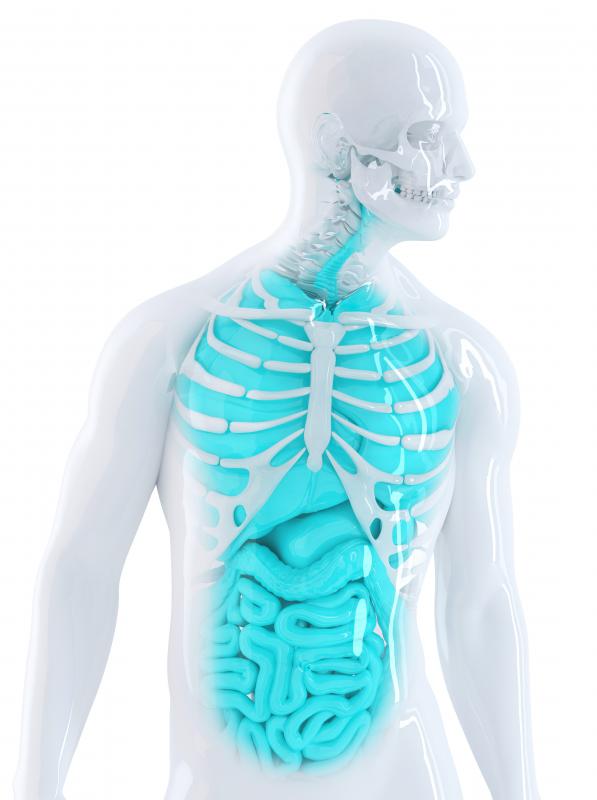At TheHealthBoard, we're committed to delivering accurate, trustworthy information. Our expert-authored content is rigorously fact-checked and sourced from credible authorities. Discover how we uphold the highest standards in providing you with reliable knowledge.
What is a Bleeding Ulcer?
The term bleeding ulcer can have a few definitions, depending upon what damage the ulcer is actually causing. An ulcer is defined as a lesion on the skin, but most people are referring to ulcers that are lesions in the gastrointestinal tract. Without treatment, these can enlarge and cause several very serious complications that may all be grouped under the heading of “bleeding ulcer.”
These complications can include severe bleeding as the lesion grows and attacks the blood vessels. Most commonly this form of ulcer may be present for a while or heavy bleeding can occur suddenly, resulting in cramping pain, nausea, dizziness, and extremely low blood pressure. Alternately, the bleeding occurs slowly and may result in tiredness, paleness, and presence of anemia. Other ulcer symptoms are usually present in slow onset cases such as intestinal upset, stomach discomfort, and acid indigestion.

Alternately, people may also use the term bleeding ulcer to refer to a lesion that either perforates (creates a hole in the intestine) or penetrates (creates a hole in the intestine and a nearby organ). Perforation may either fill the abdomen with material from the gastrointestinal tract or it can block another part of the intestine and lead to gastrointestinal obstruction. Penetration may have different symptoms depending upon the related organ that it affects. Symptoms of either of these conditions can include extreme stomach panic, vomiting blood, passing black colored stools, or matter that looks like coffee grounds. If an obstruction is present, people may vomit but usually cannot have bowel movements

All types of bleeding ulcers are extremely dangerous and anyone with an ulcer is more at risk for bleeding ulcers if they smoke, drink frequently or take acidic medications like aspirin or non steroidal anti-inflammatory drugs (NSAIDS), such as ibuprofen or naproxen sodium. Most ulcers are caused by bacterial infection, and diagnosing an ulcer early can usually prevent this serious complication in all of its forms. Treatment early, in the form of antibiotics and antacid drugs is important, and bleeding ulcer usually only presents when symptoms of an ulcer have gone untreated and been ignored.

In the most severe cases, the ulcer requires surgery of various sorts to either remove obstructions, or repair ulcerated parts of the intestinal tract or other organs. Infection rate is significant when perforation occurs, and treatment will include not only surgery but also massive antibiotic doses in intravenous form. Ulcers that have developed a slow bleed may be treated with medication alone, but an ulcer that is simply bleeding heavily and contributing to internal blood loss at a rapid rate would likely require surgery too.
AS FEATURED ON:
AS FEATURED ON:


















Discussion Comments
I have a stomach ulcer and a doctor at the walk in clinic prescribed me Naproxen.
If you think you may be at risk for a stomach ulcer, you may want to follow what's called a stomach ulcer diet -- avoiding dairy, fatty foods and caffeine, and sticking with beans, peas, and fish.
It is really important to recognize the signs of bleeding stomach ulcers early on, since the longer you wait for treatment, the higher chance there is of complications.
Bleeding ulcers are not always painful -- in fact, the only symptoms you may have in the beginning is a dark, thick stool.
However, if you experience this together with vomiting blood, or faintness, it is likely a stomach ulcer, and you should seek medical care right away.
There are three types of surgery usually associated with treating bleeding stomach ulcers:
Vagotomy, in which the vagus nerve is cut, thus interrupting the signals between the brain and stomach and reducing acid production.
Antrectomy, which involves cutting out part of the stomach that secretes the most gastric juices.
And finally, pyloroplasty, in which the surgeons cut a wider opening between the stomach and duodenum, thus allowing food to pass through more easily. This is often performed in conjunction with a vagotomy.
Post your comments